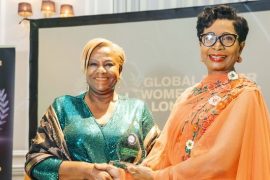Appointment of six women in leadership posts represents highest percentage since end of the war more than 20 years ago.
Vjosa Osmani has a clear vision for how she and her government will run the country.
“Every single law that comes to the assembly should be seen through the gender lens,” said Chairwoman of the Assembly of Kosovo, Vjosa Osmai in an interview with Al Jazeera, less than a month after being elected as the first woman to serve as Kosovo’s speaker of the Assembly.
Osmani is among a new generation of politicians who have entered the political scene in Europe’s youngest nation, instilling hope that was lost during previous governments led by former Kosovo Liberation Army commanders and where corruption and nepotism ruled.
Besides Osmani, five women were appointed ministers of the Ministry of Economic Development, Ministry of Justice, Ministry of Education, the Ministry of Culture and the Ministry of Local Government.
The new government comes after opposition politician Albin Kurti, leader of the Self-Determination Movement (Vetevendosje) won the most votes to become prime minister.
Osmani was the centre-right Democratic League of Kosovo’s (LDK) candidate for prime minister, who came in second after Kurti.
“It was the first time that people were openly speaking up saying ‘we want women’,” said Igballe Rugova, executive director of the Kosovo Women’s Network network, which comprises more than 150 women’s groups and organisations that advocates on behalf of Kosovar women.
The appointment of these six women in senior leadership posts represents the highest percentage of women in government since Kosovo’s liberation and the end of the war here more than 20 years ago.
“They are women with experience. They are women with courage,” Rugova said.
Women’s groups and activists are hopeful about a new era of change for Kosovo’s 1.8 million citizens.
The Self-Determination Movement and LDK formed a power-sharing coalition after a snap poll following former prime minister Ramush Haradinaj’s resignation having been summoned by a war crimes court in The Hague.
Rugova expects that this new generation of women in government will finally address Kosovo’s pressing gender-based issues, such as domestic violence, health, unemployment, and education.
Around 18 percent of women in Kosovo are part of the workforce, according to Riinvest Institute, a think-tank in Kosovo – the lowest rate in the region and one of the world’s lowest rates.
Osmani believes this represents gender inequality and harms the economy.
“That is why the government programme, which we drafted together, focuses quite a lot in creating such conditions for women in our society to find a job and get economically empowered,” Osmani said.
Rugova and members of her network recently presented Osmani with a list of demands they hope she will address in her mandate, including allocating a permanent budget for shelters for survivors of gender-based violence, and parental leave.
Osmani said she will ensure that the national budget will always take into account for shelters to protect women and children who are victims of violence.
“I really have high hopes that the situation will start slowly to change concerning the development of the economy because, for me, development of the economy is the key to fighting violence, having better health, life and education,” Rugova said of the new government.
In the previous government, maternity leave was taken out of the labour law and put as separate legislation.
Amid reports of poor treatment relating to women who were pregnant or on maternity leave, the new government has said it will place 400 inspectors from the Ministry of Labour to report on discrimination. Previously, there were fewer than 10 inspectors for the whole country.
You will see us talking and fighting for gender equality, no matter what the topic in the assembly and in the government is.
Other issues include recognising survivors of rape from the Kosovo war and moving forward with their two-decade-old cases against the perpetrators. Until today, not a single perpetrator has been jailed.
“We have to work for justice. Same with the missing people – justice is so important in order to have peace,” Rugova said.
Rugova is referring to the more than 1,600 people still missing from the war and most likely buried in mass graves in Serbia.
The new minister of justice, 32-year-old Albulena Haxhiu, has already responded positively to these issues and has met with staff from Kosovo Women’s Network about gender-based violence.
“I felt like this is an independent government chosen by us,” Rugova said. “They are listening now and acting.”
For other feminists in Kosovo, there is still room for improvement.
“Of course, it is great news, it’s something we haven’t seen in the past governments. However, it is not where we want it to be and what we would like to see. Thirty percent sounds good but I think our aim should be equality, which is 50 percent,” said Eli Gashi is a sociologist, feminist and founder of Alter Habitus – Institute for Studies in Society and Culture in Pristina.
“It’s obvious that equality and justice are all over their political programme but it remains to be seen what they will do and hopefully they will address those issues; that the voice of women will not be muted by saying we place women in the parliament and that is where the whole thing ends.”
Osmani appears to be committed to bringing change and a fresh perspective to the government and for the citizens to regain trust in the institutions, especially the justice system.
“For example, when we talk about sustainable development, energy efficiency, air quality and right to access to clean and drinking water, we’re also contributing to gender equality because today one of the main worries of mothers, not just in Pristina, but elsewhere in Kosovo, is the horrible air quality, which is leading to thousands of deaths.”
Moving forward towards fulling her four-year mandate, Osmani realises the work that has been cut out for her and the new government but she will not give up in one important area.
“You will see us talking and fighting for gender equality, no matter what the topic in the assembly and in the government is,” she said.





Comments are closed.